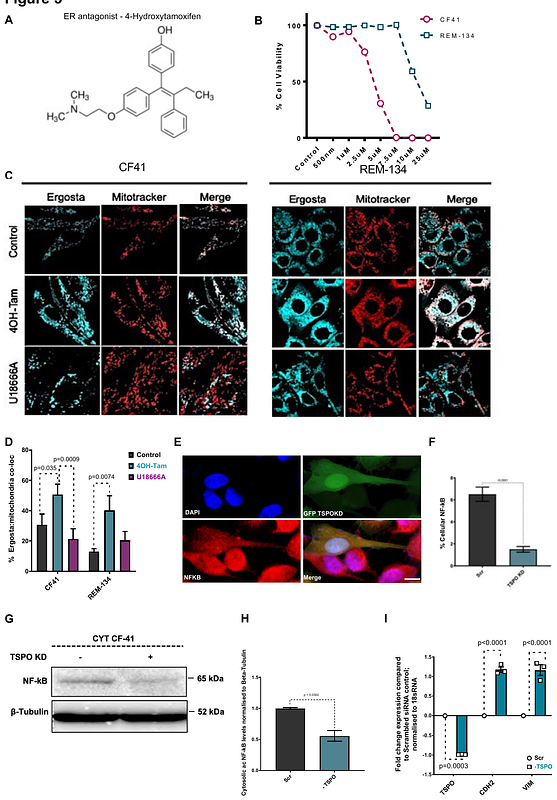Canine Mammary Tumours (CMTs) exploit Mitochondrial Cholesterol for aggressive reprogramming

Canine Mammary Tumours (CMTs) exploit Mitochondrial Cholesterol for aggressive reprogramming
Hardy, L.; Kannan, B.; Rigon, M.; Benton-Hawthorn, G.; L. Previdelli, R.; M. Reichler, I.; Guscetti, F.; P. Kowalewski, M.; Campanella, M.
AbstractIn human breast cancer the mitochondrial translocator protein (TSPO) aids pro-survival cellular response by facilitating the formation of mitochondrial contact sites with the nucleus termed Nucleus Associated Mitochondria (NAM). Here, we show that TSPO positively associates with the aggressiveness of tissues and cells isolated from Canine Mammary Tumours (CMTs). TSPO is also readily upregulated in reprogrammed mammary tumour cells following long-term deprivation of oestrogen or exposure to the endocrine chemotherapeutic (ET) agent Tamoxifen. The latter triggers mitochondrial handling of cholesterol which is facilitated by TSPO whose upregulation reduces susceptibility to Tamoxifen. TSPO binding ligands boost, on the other hand, the efficacy of Tamoxifen and Chemotherapy agents. In aggressive canine mammary tumour cells, TSPO repression impairs the NF-kB pattern thus confirming the prosurvival role of the NAM uncovered in the human counterpart. Mitochondrial cholesterol handling via TSPO emerges therefore as a signature in the aggressive reprogramming of CMTs thus advancing our understanding of the molecular mechanisms underpinning this pathology. A novel target mechanism to improve bio-marking and therapeutic protocols is here proposed.


